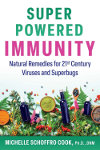
Image by Steve Johnson
The things we do on a daily basis either contribute to a strong immune system or they thwart our body’s best ability to keep us healthy. We can use all the natural or synthetic medicines that are best suited for fighting illness but it’s important to address other issues that may be interfering with keeping our body strong and healthy.
Stress is one of the worst things that deplete the immune system and most people have seen the damaging effects of stress firsthand. Perhaps you’ve gotten a cold when you were under a lot of stress? Or perhaps you experienced a setback with another health problem when unexpected stress came along? Regardless, it’s important to understand the impact of stress and, more importantly, how to reduce the effects of stress to keep your immune system strong and healthy.
Stress Management
We tend to think of stress as the enemy, but some stress is actually beneficial when it comes to the health of our immune system. According to research published in the journal Immunologic Research, short-term stress lasting for only minutes or hours actually improves wound healing, as well as the body’s ability to fight infections and tumors. However, excessive amounts or long-term stress can have destructive consequences by suppressing the immune response and worsening immune system diseases.
Psychological stress can impair the immune system and its ability to function properly, having different effects depending on whether the stress is acute (short-lived) or chronic (long-term). While stress may sometimes feel overwhelming and impossible to avoid, there are typically many options to reduce stress load or to alleviate the pressure buildup of excessive stress, thereby reducing any possible damage to the immune system.
Strategies That Work
There are many ways to cope with stress and strengthen your body’s immune system. It probably won’t come as a surprise to you that the same things that alleviate stress also help to keep the immune system strong. I’ve compiled many of the best habits to adopt for both purposes and for the end goal of alleviating the damaging effects of stress while also strengthening your immune system against infectious diseases.
1. Don’t Skip Meals
Low blood sugar is a serious stress to the body that results in a cascade of stress hormones. While an occasional boost of these hormones might be fine, over time this chronic stressor can actually result in massive swings in blood sugar levels that can deplete the body and contribute to chronic health issues.
Remember: your body is fueled by the slow and steady release of natural sugars from having broken down food into its primary components, one of which is sugar. As a result, it is important to eat every few hours to ensure your body has enough energy to effectively perform its many functions, and to avoid fluctuations in stress hormones that cause energy depletion and mood swings and challenge our ability to cope with stress.
Don’t be tempted to eat something sugary to raise your blood sugar levels. It quickly results in plummeting blood sugar levels that further stress the body and may deplete the immune system.
2. Eat a High Fiber Diet
In addition to eating every few hours to ensure that your body has an adequate supply of energy, eating a diet that is high in fiber can also ensure that blood sugar is released slowly and is sustained over hours.
To help you get started boosting your fiber intake, enjoy a bowl of high-fiber oatmeal for breakfast, sprinkle flax or hempseeds on your cereal, add a can of beans to your next soup or stew, add chickpeas to your next rice bowl or atop a salad, and thicken your next smoothie with a tablespoon of chia seeds (drink it up quickly or it will turn to pudding).
3. Say No to People Who Steal Your Energy
Make a list of the people in your life who sap your strength and create stress in your life. Take an honest assessment of which relationships may be one-sided or who you could see less frequently.
Life is short. Surround yourself with people who bring out the best possible you, not stress you out constantly. Of course, everyone is negative or causes stress to others sometimes, it’s just all about finding a compassionate balance you can live with.
4. Take a Vitamin B-Complex and Vitamin C Supplement
These nutrients are depleted during times of high stress, which, of course, also includes fighting infection. Additionally, they are not stored in the body so it is imperative to obtain adequate amounts from food and supplements every day to ensure your brain has sufficient energy to function properly.
Without adequate B-complex vitamins we become susceptible to stress, depression, and irritability. Our bodies deplete high amounts of vitamin C when we’re stressed, yet this essential nutrient is needed to fight free radicals that could otherwise damage the brain.
B vitamins are largely found in brown rice, root vegetables, citrus fruit, strawberries, cantaloupe, kale, and green vegetables. Supplement with a 50 to 100 milligram B-complex supplement on a daily basis (some of these vitamins are measured in mcg, so 50 to 100 micrograms in these cases).
Vitamin C is found in oranges, lemons, grapefruit, limes, pomegranates, strawberries, black currants, spinach, beet greens, tomatoes, sprouts, and red peppers. Most nutrition experts recommend a 500 milligram ascorbic acid or calcium ascorbate (both of which are natural forms of vitamin C) supplement as a daily minimum.
5. Meditate or Breathe Deeply
Research in the medical journal Psychiatry Research shows that meditation affects the flow of blood to the brain and alters brain activity. Using MRI technology, researchers conducted brain scans before starting, during, and after meditation stopped. They found that four regions of the brain were affected during meditation and that meditation improved blood flow to the brain. Some of the brain changes continued even after meditation stopped.
6. Just Say No
You may not have to do every task on your to-do list, handle everyone’s chores or needs, respond to every message, or accept every social invitation. Obviously, you can’t say no to your most pressing tasks, but you can itemize them and prioritize those that must be done, those that might need to be done, and those that are not necessities.
Remove tasks from your list that you really don’t need to do. Whether it’s your in-laws’ request for you to cook dinner or a social visit that feels more obligatory than enjoyable, you can simply say no. You deserve peaceful, quality time devoted to reducing stress.
7. Ask for Help
Don’t try to do everything yourself. Ask your partner, kids, friends, or family to help, or if your financial situation permits, hire someone to help with cleaning, odd jobs, or other items in your home or work that would make life less stressful for you.
8. Reduce Your Sugar Intake
I know it can be difficult to resist all the sweets during times of stress, but stress-eating may actually be contributing to feeling more stress if you’re choosing sweets. Sweets not only impair immune function for hours at a time, making you more vulnerable to colds, flu, or other infectious conditions, they also deplete your reserves for dealing with stress.
And, don’t forget that alcohol has a similar effect as white sugar, so it is best to reduce intake to optimize your immune function. In place of sugary snacks, choose high-fiber options like those mentioned above, or high-protein nuts or sunflower or pumpkin seeds, and you’ll experience fewer cravings or hunger, making it easier to enjoy a cookie or two but not gorge on the whole stack.
9. Exercise Your Way to Super-Powered Immunity
We all know exercise is good for us. It’s important to get our heart pumping to push blood through our blood vessels and to bring oxygen into the bloodstream. But, it’s also important to reduce stress and to keep the immune system functioning optimally. And, cardiovascular activity helps to transport oxygen through your bloodstream.
Research published in the International Journal of Environmental Research and Public Health has shown that oxygen, when used therapeutically, has antiviral effects. But, you don’t have to go for expensive oxygen therapies to start benefiting from increasing oxygen levels in your body. You can start by getting some cardiovascular activity on a regular basis.
10. Sleep Your Way to Better Immunity
Research shows that sleep plays a critical role in our overall health, and in influencing our risk of infectious disease. In a study published in the medical journal Annual Review of Psychology, researchers found that sleep disturbances, restriction, or insomnia affected both innate and adaptive immunity.
Insufficient sleep also impacts antiviral immune responses and the risk of infectious disease. It can also increase inflammation in the body, which can play a serious role in the outcome of an infectious disease.6
Here are some strategies to help you improve the quality and quantity of your sleep. They work best when used on a regular basis over time, so even if you don’t get immediate results, I encourage you to stick with them.
-
Smelling pure lavender. Alan Hirsch, M.D., an essential oil researcher and author, found that smelling pure lavender calmed the entire nervous system in only a minute, helping people to feel more relaxed and sleepier. Be sure to choose organic lavender oil, specifically from Lavandula angustifolia, not essential oils of other lavender species that tend to be less effective, and definitely avoid fragrance oil, since it has no health benefits at all and may contain toxic substances that are detrimental to your health.
-
Go to sleep at the same time each night. Your body will start to adjust to these patterns, helping you to feel sleepy when your bedtime approaches.
-
Stop working at least a few hours before bed. Avoid other mentally stimulating activities too close to bedtime.
-
Unplug electronic devices or any blue-light emitting appliances like televisions, smartphones, computers, and so on, since the blue light can interfere with sleep cycles. If you need a night light, choose a red bulb since red light doesn’t seem to interfere with the body’s ability to fall into a deep state of sleep.
-
Get into a regular evening relaxation ritual: dim the lights, stop working, take a bath, or do something relaxing before bedtime.
-
Avoid eating at least three hours before bed as indigestion, bloating, or heartburn can interfere with your ability to fall asleep. Skip the caffeine in the evening or any time after 3:00 in the afternoon if you have difficulty sleeping.
11. Wash Your Hands the Right Way
Most people are well aware that handwashing is one of the best ways to prevent the contraction of viral illnesses like colds, flu, and others. But, using soaps or sanitizers that contain harmful toxic ingredients that can absorb into your bloodstream directly through your skin isn’t helpful for your immune system health and will likely deplete the beneficial microbes on the surface of your skin as well.
You’re far better off to use a natural soap devoid of toxic chemical ingredients and spend several more seconds washing your hands.
With A Little Help...
It is not necessary to incorporate every strategy mentioned above to reap immune-boosting benefits. Incorporating these strategies into your life isn’t meant to be stressful or create tension, but to reduce the immune-damaging effects of stress.
In the same way, it is not necessary to eat every immune-supporting food or take every herbal or other remedy outlined earlier, but to gently support your body’s ability to ward off harmful infections.
Your body is an incredible creation that has the ability to fight infection and heal itself. It can simply perform its multitude of impressive immune-supporting tasks even more effectively when you reduce the stress in your life as much as possible (remembering some stress is actually beneficial) and give your body additional tools in the form of foods and natural medicines to support your health.
Your body is far more powerful than you might believe, and it works every second of every day in a diligent effort to fight illness and keep you healthy. Adding some key remedies and strategies will help support it and will be worth the minimal effort.
Copyright 2023. All Rights Reserved.
Adapted with permission of the publisher
Healing Arts Press, an imprint of Inner Traditions Intl.
Article Source:
BOOK: Super-Powered Immunity
Super-Powered Immunity: Natural Remedies for 21st Century Viruses and Superbugs
by Michelle Schoffro Cook
 In this easy-to-follow guide, Dr. Michelle Schoffro Cook reveals the most valuable natural remedies against viruses and superbugs and how to harness their powerful healing abilities for supercharged immunity. She also explores behaviors that can sabotage your efforts to rebuild your immune system as well as the best habits for maintaining super-powered immunity for life.
In this easy-to-follow guide, Dr. Michelle Schoffro Cook reveals the most valuable natural remedies against viruses and superbugs and how to harness their powerful healing abilities for supercharged immunity. She also explores behaviors that can sabotage your efforts to rebuild your immune system as well as the best habits for maintaining super-powered immunity for life.
Detailing how to build the ultimate immune system, this practical guide reveals how you can prepare yourself as the Post-Antibiotic Age becomes a reality.
For more info and/or to order this book, click here. Also available as a Kindle edition.
About the Author
 Michelle Schoffro Cook, Ph.D., DNM, is a board-certified doctor of natural medicine, doctor of acupuncture, registered nutritionist, certified herbalist, and aromatherapist with over 25 years of experience. A popular natural health blogger, she is a regularly featured health expert in magazines such as Woman’s World. She is the award-winning author of 25 books, including 60 Seconds to Slim and The Ultimate pH Solution.
Michelle Schoffro Cook, Ph.D., DNM, is a board-certified doctor of natural medicine, doctor of acupuncture, registered nutritionist, certified herbalist, and aromatherapist with over 25 years of experience. A popular natural health blogger, she is a regularly featured health expert in magazines such as Woman’s World. She is the award-winning author of 25 books, including 60 Seconds to Slim and The Ultimate pH Solution.
Author's Website: DrMichelleCook.com/

























